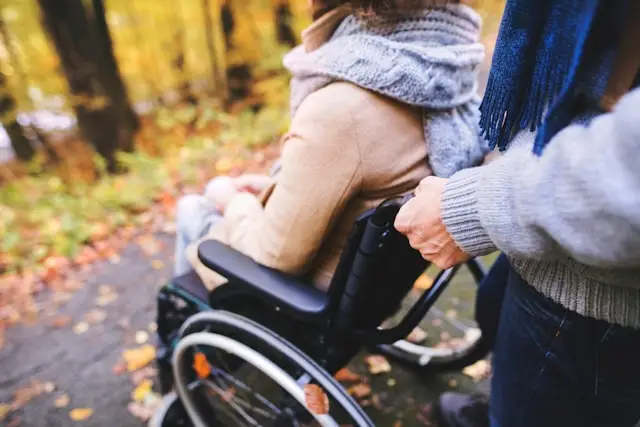Are you a caregiver to a spouse or family member? You are not alone! More and more people in the United States are caring for family members.
According to data from the AARP and National Alliance for Caregiving “Caregiving in the U.S. 2020” report, as well as other recent studies:
• Approximately 53 million adults in the US are unpaid caregivers (2020 data)
• This represents about 21% of American adults
• 61% of caregivers are women
• Average age of caregivers is 49.4 years
• 39% of caregivers are 18-44 years old
• On average, caregivers spend 23.7 hours per week providing care
• 23% of caregivers provide care for 41 or more hours per week
• 50% of care recipients are 75 years or older
• 26% of care recipients have Alzheimer’s disease or dementia
• The average duration of a caregiver’s role is 4.5 years
• 29% of caregivers have been providing care for 5 or more years
If you know or are a caregiver, you know that caregiving takes a toll on the person giving the care.
• 23% of caregivers report their health has worsened due to caregiving
• 36% of caregivers report high emotional stress from caregiving
I saw first hand the toll caregiving can take on someone as I watched my now deceased wife care for her mother until her mother’s death at age 99. The last five years of that caregiving took a toll on my wife.
My wife’s mother lived downstairs from us in a split-level home. My mother-in-law used to cook and bathe herself, but as she reached her early nineties, she was no longer able to care for herself.
My wife was up and down the stairs to her mother’s area more times than I cared to count. Some days, my wife would just have come upstairs from caring for her mom when her mother would call her name for something else. My wife would become frustrated and angry that her mother hadn’t requested what she wanted before my wife went upstairs.
I watched my wife age significantly during the last five years of her mother’s life.
So how can we dance gracefully with caregiving responsibilities?
Take care of yourself. Eat healthy. Sleep plenty. Exercise. Keep your own medical appointments.
Say, “No.” Decline additional responsibilities when you are overwhelmed. Establish clear limits on your time and energy. Don’t let guilt, self-imposed or other-imposed, be a driver in making decisions about the care you give.
Get help. Explore what caregiving help is available from family, friends, and community agencies. Even a few hours respite a week can help you maintain a positive attitude toward your loved one and the care you give them.
Tend your soul. It’s easy to neglect activities that give meaning to your life when you are overwhelmed with caregiving. Perhaps a family member or friend can sit with your loved one while you attend your community of faith. Maybe you can listen to a favorite podcast while you are providing care. Remember to consciously breathe often. Listen to uplifting music. Talk with a spiritual companion in person, over the phone, or by Facetime or Zoom. Post inspirational quotes on your mirror. Take a walk in nature.
“Human soul is a car and human body is a driver. One cannot run without the other.” Santosh Kalwar
Caregiving is a challenging dance to learn. All the self-care steps are important to dance gracefully.
Jim Cyr is a trained spiritual companion who helps older adults reflect on the meaning of their lives and how God has been present or absent as they face the challenges of aging and end of life.
